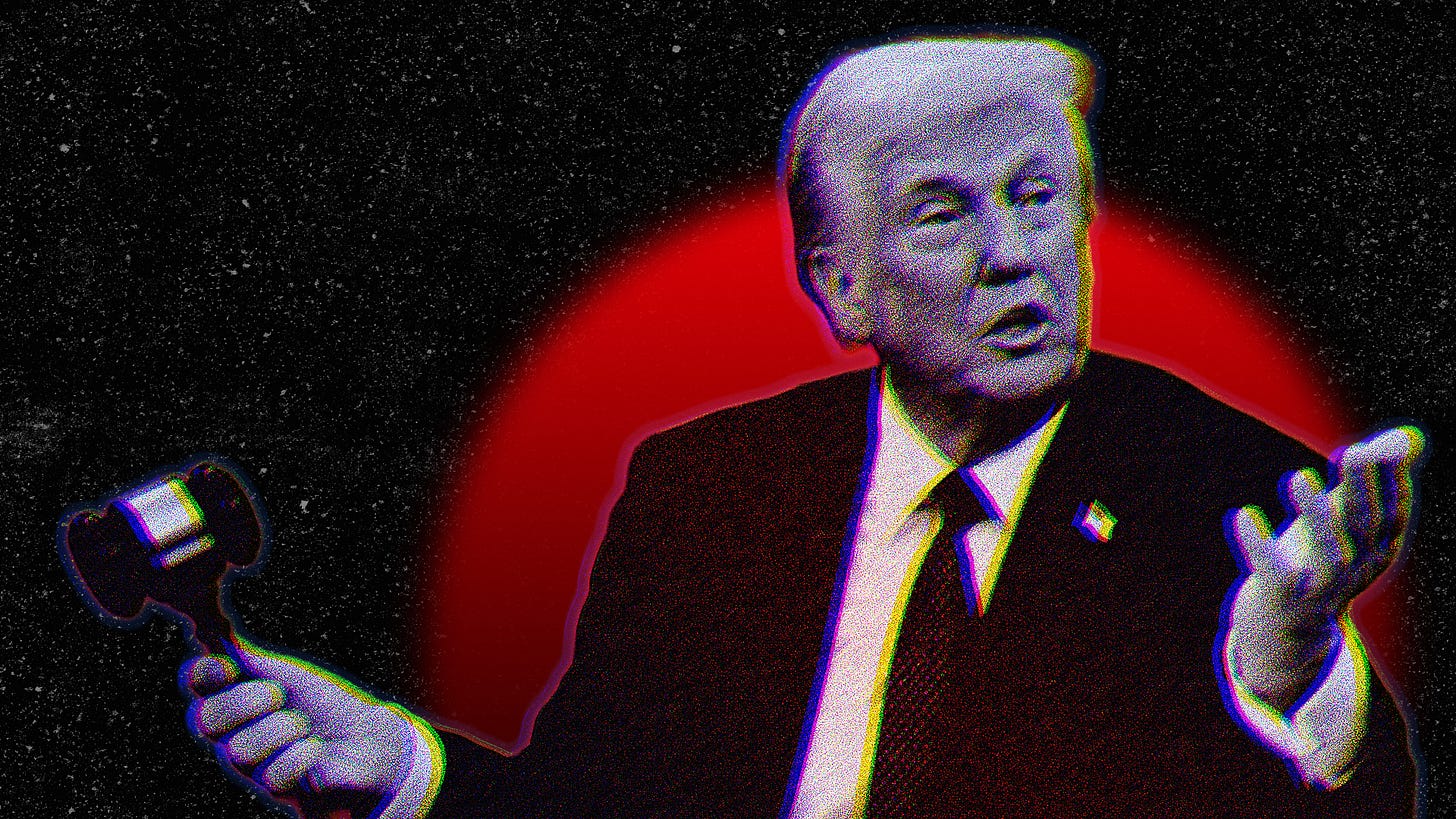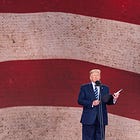Don't Be Fooled, Courts Can't Really Stop Trump From Assaulting Law Firms
He has too many means to intimidate them that judicial relief cannot touch, scaring them away from representing politically disfavored clients
The battles over President Trump’s revenge orders against Big Law firms seem, on the surface, to have settled into a quiet period.
Trump has issued a series of executive orders seeking to punish law firms associated with his political opposition. The penalties against these firms include:
moving to strip … lawyers of security clearances, restricting … lawyers’ ability to enter or be present in federal buildings, and requiring agency heads to review the federal contracts of any company that has a client relationship with [the targeted firm], even if that firm does not represent them on federal business.
It has been weeks since Trump has entered any new decrees of this sort, and the list of firms settling with him by arranging to donate pro bono services to causes he finds agreeable has been stable since April 11, at nine (most of which he never actually targeted in decrees). While it seems likely that his expectations differ from those of the law firms on exactly what they were committing to, we have not had the benefit of a full clarification on that point.
Perhaps most significantly, two firms, Perkins Coie and WilmerHale, have obtained permanent injunctions on summary judgment broadly blocking their decree, subject to appeal, from Judge Beryl Howell and Judge Richard Leon, respectively. Another firm, Jenner & Block, has won a temporary restraining order.
All of which might make you imagine the danger is fading. It shouldn’t.
Contempt for the Courts
What judicial relief we’ve seen has only partial reach and would be hard to enforce under the best of circumstances. And the present circumstances are anything but the best, given the Trump administration’s willingness to flirt (and more than flirt) with contempt of court and outright defiance of court orders, and given approaching threats in Congress to courts’ ability to enforce their orders at all.
For example, the challenges to the penalty decrees have often omitted the provisions that arbitrarily denied security clearances to lawyers at a firm disliked by Trump. Avoiding such a challenge may have seemed prudent—no one can exactly predict how much deference courts will accord to the president’s broad authority on security clearances. But it leaves a hole that can be gaping because a Big Law firm representing leading tech or industrial companies is inevitably going to generate a certain number of cases requiring the use of lawyers with clearances on matters such as defense procurement administration. Losing those large clients would be a heavy penalty for continued independence from Trump.
Other parts of the decrees are more clearly subject to being enjoined. But the question is then how readily the court can enforce its will. For example, a judge may nix the part of a presidential decree that forbids federal employees from speaking to lawyers from a banned firm, even to give routine regulatory guidance or negotiate the settlement of a tax or property dispute. But it could prove hard to nail down contempt if an agency aware of White House wishes doesn’t formally exclude a banned law firm but simply gives an endless runaround to its appointment requests while continuing to do business as usual with favored firms.
The same applies to the provisions discouraging federal agencies from awarding contracts to private firms that are clients of a banned law firm. Can you prove for certain that’s why your client lost its contract renewal? Clients can get the message pretty quickly.
And if a court finds there was contempt, can it enforce it? Not if the president’s allies in the House of Representatives get their way. Extraordinary language in the pending reconciliation budget bill would bar courts from enforcing most contempt orders, whether on alien removals or on any other subject—a blow to efforts to hold Trump agencies accountable. More generally, this insidious provision, which has got nearly not as much attention as it deserves, would inflict massive damage on the rule of law and individual rights.
Measure by Fear
If you want to measure whether the danger has passed, measure by fear. When CBS’ 60 Minutes—which has come under its own pressure from Trump to temper its criticism—decided to report on the attack on law firms in a segment earlier this month, its first problem was to find anyone willing to speak on the record. “It was nearly impossible to get anyone on camera for this story,” its report began, “because of the fear now running through our system of justice.”
Small wonder our friends Greg Lukianoff and Adam Goldstein at FIRE (Foundation for Individual Rights and Expression), which joined the same amicus brief that the Cato Institute authored in the Perkins Coie case, wrote in a recent account (that is well worth reading in its entirety): “Of the many things the Trump administration has done in the last 100-and-change days that have impacted free speech, the threats to law firms might be the most troubling.”
As with many of its other attacks on the American system, the Trump administration seems to expect that its attempt to destroy the independence of the legal profession will generate outrage at first, but that reaction will fade as the story is no longer new. For precisely that reason, it is vital to keep attention—and public pressure—focused on this story, because this is still just the beginning of this threat, not the end.
An earlier version of this piece was originally published at Cato At Liberty.
Follow us on Bluesky, Threads, YouTube, TikTok, Facebook, Instagram, and X.
We welcome your reactions and replies. Please adhere to our comments policy.









No one is more consistently right than my former colleague Walt. When he says to be scared, you must listen. We are uncharted waters and the tides don't look good. And, like on the Titanic, not enough notice to take appropriate action.
Please don't use the term "pro bono" for extorted services. "Pro bono" is short for "pro bono publico," for the public good. It isn't a fancy Latin synonym for "free."